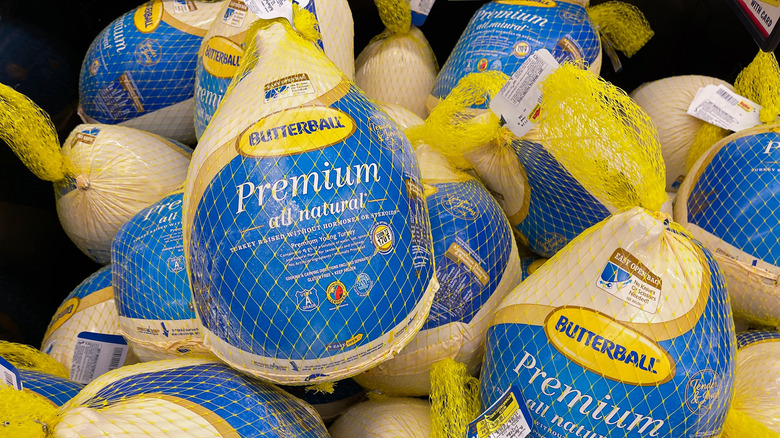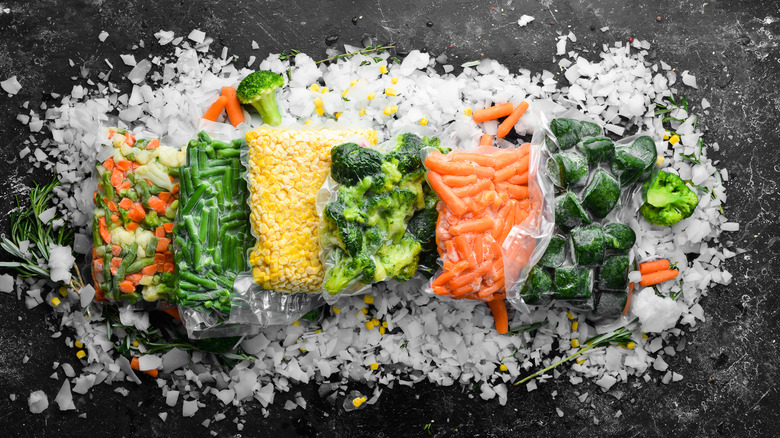The Difference Between Raw And Fresh Food, According To Alton Brown
Most people use the terms "raw food" and "fresh food" interchangeably. You assume if something is raw, that means it's fresh ... or if something is truly fresh, that means it's most likely in its raw form. But this isn't always necessarily true, and food science fanatic Alton Brown would agree.
The definition of raw food is simply food that hasn't yet been cooked; it's unprocessed and unmodified. But in a Q&A with Alton Brown for the Food Network YouTube community, the cook explains that there's a difference between something being raw and something being fresh.
Brown tells the crowd that when we refer to food as fresh, that distinctly means that whether it's a fruit, a vegetable, or an animal, that thing is currently closest to the state it was in when it was alive. Although some wouldn't consider frozen food to fall into this category, Brown posits that food is often frozen at its peak freshness.
Fresh equals raw, but raw doesn't always equal fresh
Alton Brown uses turkey as an example of why raw food isn't always fresh. When you buy a raw turkey (which may often be labeled "fresh"), that turkey was certainly fresh at one point. But unless it came from the farm down the street, it most likely needs to get shipped to your nearby grocery store and often has to travel far to get to you. By the time you get your hands on it, it may still be raw — uncooked, unfrozen, unprocessed — but there's a good chance it'll no longer be fresh.
Think about it this way: fresh food is new food. It's been recently produced or picked, and it hasn't been preserved or spoiled in any way. Raw food is uncooked food, and it hasn't been processed or refined, but that doesn't always mean it's new food.
What about frozen food?
There's another question that comes up when considering the distinctions between raw food and fresh food: Where does frozen food fall in all of this? The fact is, many types of frozen foods can actually be considered raw and fresh all at once.
This is why frozen food can sometimes be a better choice than so-called "fresh" or "raw". When it comes to frozen fruits and vegetables, most are picked in their freshest state and frozen within hours to preserve peak condition and nutritional value. So ultimately, you'll get a better, fresher product than the "raw" or "fresh" produce that sits out at your local supermarket ... after it's traveled, been in storage, and has slowly but surely lost some of its nutritional content.
Alton Brown will agree that this frozen-is-better theory is especially true in the case of "fresh" poultry and "fresh" fish. Back to that turkey from before, he explains that chances are that bird wasn't local — so you're better off buying it frozen. It'll be safer, more closely monitored, and ultimately in better condition than a once-fresh raw turkey that's had to travel.



